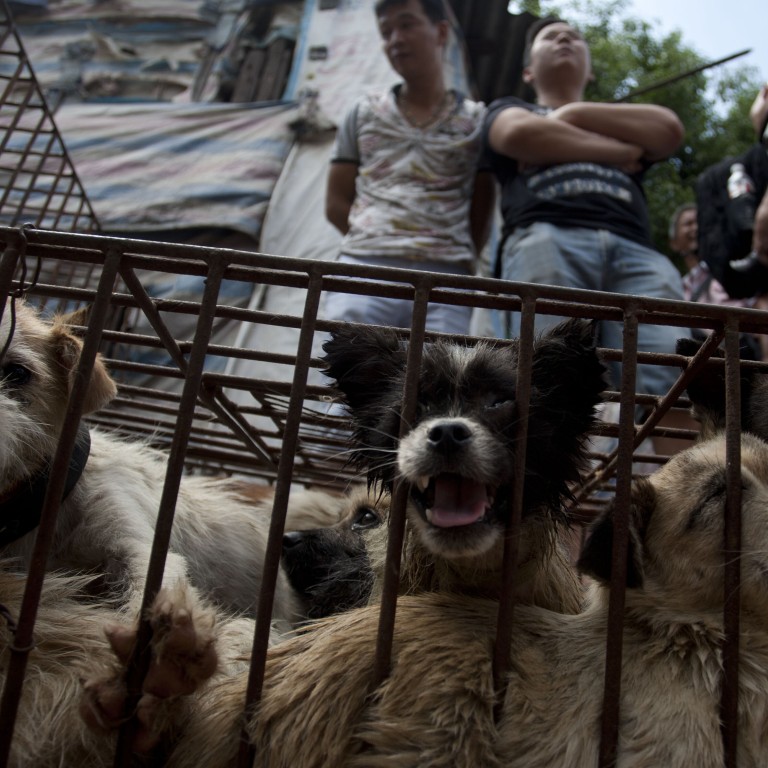
Dogs are pets, not food, says Chinese agriculture ministry
- New rules on raising livestock come weeks ahead of controversial dog meat festival in Yulin
- Regulations that also lists ‘special species’ that can be raised for food or fur form part of move to crack down on wildlife trade after coronavirus pandemic
China has reclassified dogs as pets rather than livestock in a set of new guidelines released by the agriculture ministry as part of a broader crackdown on the wildlife trade.
The new directory of genetic resources of livestock and poultry listed 17 traditional livestock species – including cattle, pigs, poultry, rabbits and camels – and added 16 “special species” including reindeer, alpacas, pheasants, ostriches and foxes.
The species on the list fall under the jurisdiction of the Animal Husbandry Law, which means it is legal to raise them for food, wool or fur.
Shenzhen’s move to ban eating cats and dogs welcomed by animal rights activists
In a notice on its website, the agriculture ministry said that while it was still gauging public opinion on the list of approved animals, most people agreed dogs should not be listed as livestock.
“There’s a long history of domesticating dogs, in the past they were used for guarding houses, hunting and herding. Now they are raised as pets, for search and rescue, for aiding the blind and have a closer bond to humans,” the notice said.
“We should also see that people are becoming more civilised and their dietary habits are changing, some traditional customs about dogs are changing as well.”
However, the reclassification does not explicitly ban eating dogs or raising them for meat – potentially putting the trade in a legal grey area.
People who want to raise dogs for other purposes – for example as working animals – will have to get permission from the local authorities.
The reclassification comes as part of moves to clamp down on the trade in wild animals in the wake of the Covid-19 pandemic.
The coronavirus that causes the disease is widely believed to have originated in horseshoe bats and possibly jumped over to humans via intermediary species on sale in the wet markets of the city of Wuhan.
Since then, China has swiftly banned the wildlife trade and multiple cities across China followed with their own regulations.
The southern city of Shenzhen became the first to ban eating dogs last month in a subclause to its wildlife restrictions that included a “white list” of animals that could legally be eaten.
It is not clear how the agriculture ministry’s rules will be enforced and the lack of specific laws on animal cruelty means the problem of people stealing and killing dogs may still persist.
Chinese community offers US$28 reward for killing ‘stray’ dogs
The Humane Society International, an animal welfare group, estimated that around 10 million dogs a year are killed for China’s dog meat trade.
Wendy Higgins, a spokesperson for the group, said she welcomed the government measures.
“This now presents the perfect opportunity for cities across China to act upon the government’s words by protecting dogs and cats from the meat trade thieves and slaughterhouses,” she said.
Most people in China do not eat dogs, according to a survey by the group in 2016.
About 64 per cent of Chinese citizens polled want to see an end to the Yulin festival, and more than half think the dog meat trade should be completely banned, it found.

.jpg?itok=H5_PTCSf&v=1700020945)